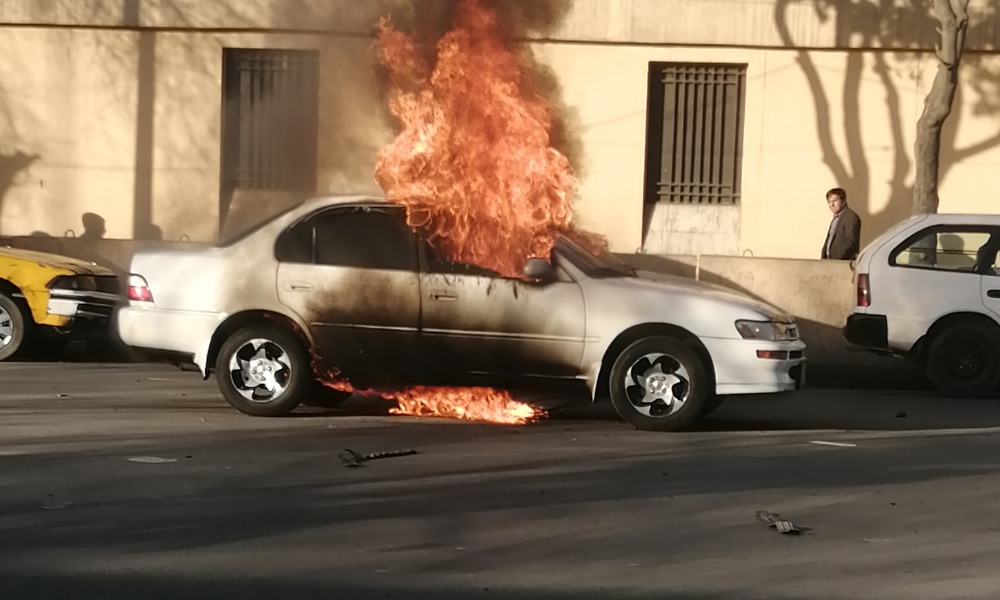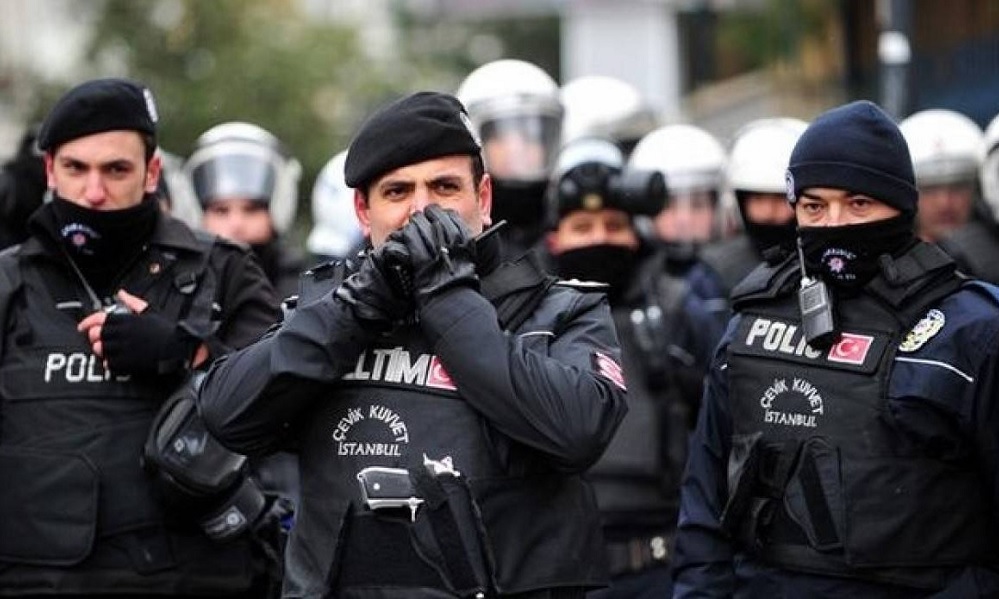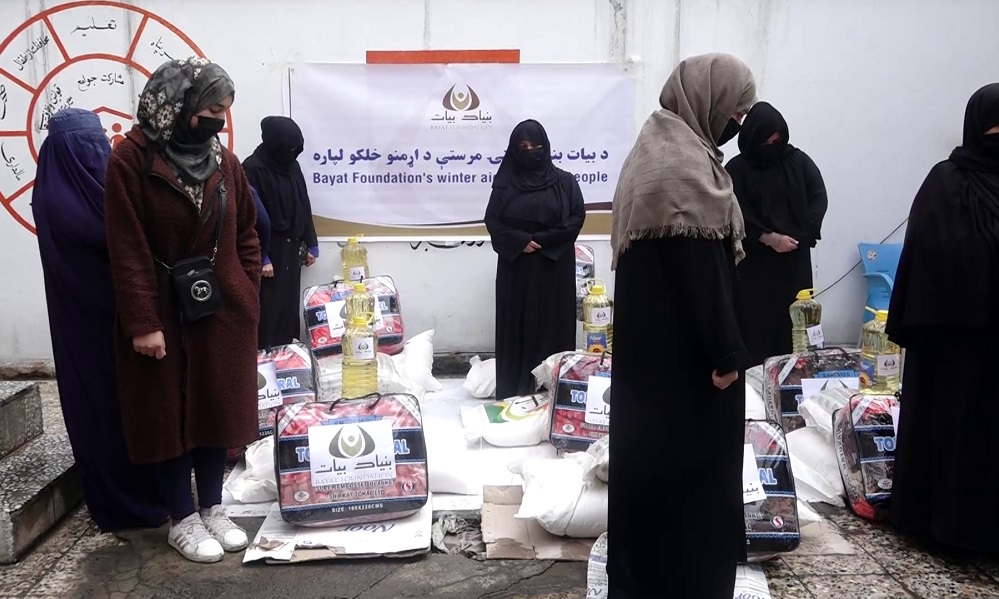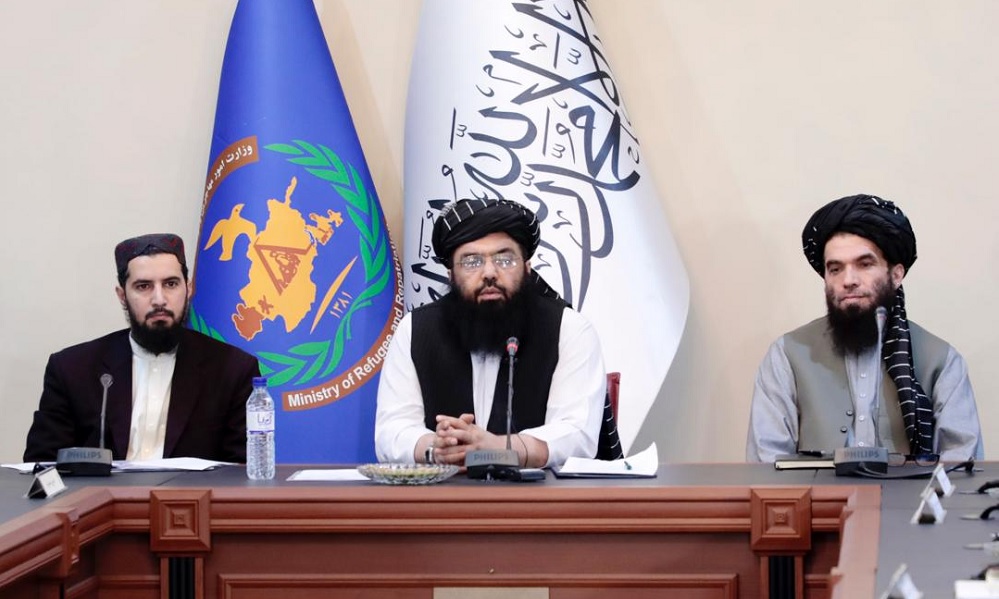Latest News
Targeted killings taking serious toll on civil society and media: UN report

The UN Assistance Mission in Afghanistan said Monday that human rights and media space in Afghanistan has contracted in the past few months as a result of the sharp increase in targeted attacks against professionals in these two sectors.
In a report issued Monday by UNAMA, analysis shows that since the start of peace talks in Doha, on September 12 last year, until January 31, 11 human rights defenders and media workers have been killed in targeted attacks.
The new report analyses data and trends connected to the killings and traces the changing patterns of attacks on these key sectors and provides recommendations.
UNAMA stated in the report that “this trend, combined with the absence of claims of responsibility, has generated a climate of fear among the population.”
In addition, research found that human rights and media space has contracted as a result, with many professionals exercising self-censorship in their work, quitting their jobs, and leaving their homes and communities with hopes it will improve their safety. Many, including high profile personalities, have fled the country.
“The killings have had the broader impact across society of also diminishing expectations around efforts towards peace,” a UNAMA statement read.
“The Afghan people need and deserve a flourishing civic space – a society where people can think, write and voice their views openly, without fear,” said Deborah Lyons, the Secretary-General’s Special Representative for Afghanistan.
“The voices of human rights defenders and the media are critical for any open and decent society. At a time when dialogue and an end to the conflict through talks and political settlement should be the focus, the voices from human rights and the media need to be heard more than ever before, instead, they are being silenced,” said the envoy, who is also head of UNAMA.
UNAMA stated that one of the key trends to emerge in the past few months is that attacks against representatives of the human rights and media sectors in Afghanistan are clearly “intentional, premeditated and deliberate targeting of individuals with perpetrators remaining anonymous.” This contrasts to previous years.
The report also records a total of 65 human rights defenders and media professionals killed in the period from 1 January 2018 to 31 January 2021; 32 from the human rights sector and 33 from the media.
Of these, 11 (five human rights defenders and six media) were killed in the four-month period from 1 October 2020 – 31 January 2021 alone, the statement read.
The report notes that as they work to provide timely information to the population of Afghanistan on a range of issues (including violations of international humanitarian law and human rights law), human rights defenders, journalists and media workers are far too often exposed to threats, intimidation, harassment, surveillance or arbitrary detention.
A series of recommendations to both state and non-state actors are contained in the report.
Recommendations made to the Afghan government include the establishment of an effective and cooperative national protection mechanism under the leadership of the Second Vice President Sarwar Danish.
Also for an adequate preventive framework, including special protective and proactive security measures for human rights defenders, journalists and media workers, to be put into place.
UNAMA also called for assurances that human rights defenders, journalists, and media workers can continue their legitimate rights to life, freedom of association, freedom of expression and access to information, as well as other fundamental freedoms, without fear of reprisal or attack.
Key among the recommendations was counter impunity, including by conducting independent, impartial, prompt, thorough, effective, credible and transparent investigations into killings and that genuine accountability, and prosecuting of suspects follow due legal process.
Recommendations to insurgent groups included the call for them to cease all killings of human rights defenders, journalists and media workers, in accordance with international human rights and humanitarian law.
For the Taliban in particular, UNAMA called on them to condemn, at the leadership level, the killings of human rights defenders, journalists and media workers.
UNAMA also called on the group to investigate cases where Taliban members are alleged to have been involved and hold to account Taliban members that order or implement the killings of human rights defenders, journalists and media workers.
The group was also encouraged to adopt, publicize and enforce policies that prohibit the killings of human rights defenders, journalists and media workers and to repeal existing policies (and refrain from adopting new ones) limiting civic space, including restrictions to freedom of association, the work of civil society and humanitarian actors, and freedom of expression.
The international community was also called on to assist with the problem.
UNAMA urged them to continue condemning the killing of human rights defenders and media professionals, and to underscore the importance of the role of human rights defenders and independent media for a unified, sovereign, peaceful and democratic Afghanistan.
UNAMA also encouraged the international community to increase support to programs that provide security, travel, financial, capacity building and other assistance to them.
Latest News
Turkish intelligence captures a Daesh member near the Durand Line

Turkish intelligence agents have captured a senior member of Daesh near the Durand Line, reportedly preventing planned suicide attacks in Turkey and other countries, according to Turkey’s state-run Anadolu Agency on Monday.
The suspect, identified as Mehmet Goren, is a Turkish citizen. He was apprehended during a covert operation and transferred to Turkey. Details on the timing of the operation or the involvement of Afghan and Pakistani authorities were not disclosed.
According to the report, Goren had risen through the ranks of Daesh and was allegedly tasked with carrying out suicide bombings in Turkey, Pakistan, Afghanistan, and Europe.
Daesh has a history of deadly attacks in Turkey, including the January 1, 2017 shooting at an Istanbul nightclub that killed 39 people.
Anadolu Agency reported that Goren’s arrest also provided intelligence on the group’s recruitment strategies and planned activities.
Latest News
Dozens of needy families in Kabul receive winter aid from Bayat Foundation

Dozens of needy families in Kabul’s fifth district have received essential winter assistance from the Bayat Foundation, as part of ongoing efforts to ease hardship during the cold season and worsening economic conditions.
According to foundation officials, the aid package includes staple food items such as flour, rice, and cooking oil, along with warm blankets to help families cope with freezing temperatures. Haji Mohammad Ismail, Deputy Head of Bayat Foundation, said the distribution began in Kabul and will soon be expanded to other provinces.
“Our assistance includes flour, rice, cooking oil, and blankets,” Ismail said. “Today, we started distributing these items in Kabul’s fifth district, and God willing, the aid will reach other provinces in the near future.”
Afghanistan continues to face widespread poverty, unemployment, and food insecurity, with many families struggling to meet basic needs, particularly during winter when access to work and heating becomes more difficult.Humanitarian organizations and charitable foundations have stepped up relief efforts to support those most affected.
Beneficiaries welcomed the assistance, describing it as a lifeline. “May God bless you for helping the poor. We had nothing and no work,” said one recipient. Another added, “Thank you for your help. Our flour was almost finished.”
Bayat Foundation officials stressed that winter aid distributions will continue in Kabul and other provinces in the coming days, as part of their broader commitment to supporting needy families across the country.
Latest News
Nearly seven million Afghan refugees return home since Islamic Emirate’s takeover

Since the Islamic Emirate came to power, approximately 6.8 million Afghans have returned home, either voluntarily or forcibly, from neighboring countries and other nations, according to the Minister of Refugees and Repatriation.
Mawlawi Abdul Kabir, speaking at a meeting on finalizing a draft plan for a permanent migration solution in Afghanistan, added that 1.3 million Afghans have been internally displaced due to natural disasters during the same period.
With winter approaching, widespread poverty and severe cold are threatening thousands of lives. Meanwhile, the forced expulsion of Afghan migrants from neighboring countries, particularly Iran and Pakistan, continues.
The Islamic Emirate has repeatedly urged neighboring states to allow migrants to return voluntarily. According to UNHCR, over two million Afghans have returned from Iran and Pakistan since the start of 2025.
-

 Latest News3 days ago
Latest News3 days agoAfghan border forces prevent illegal entry of hundreds into Iran
-

 Latest News3 days ago
Latest News3 days agoPakistan summons Afghan diplomat over deadly attack in North Waziristan
-

 Latest News2 days ago
Latest News2 days agoAfghan health minister calls for medical cooperation between Kabul and New Delhi
-

 Latest News1 day ago
Latest News1 day agoAfghanistan signs 30-year deal for marble mining in Daikundi
-

 Latest News3 days ago
Latest News3 days agoJapan allocates nearly $20 million in humanitarian aid for Afghanistan
-

 Latest News3 days ago
Latest News3 days agoKarzai urges reopening of girls’ schools and universities for Afghanistan’s bright future
-

 Health5 days ago
Health5 days agoAfghanistan seeks India’s support in standardizing traditional medicine
-

 World5 days ago
World5 days agoUS readies new Russia sanctions if Putin rejects peace deal, Bloomberg News reports
























